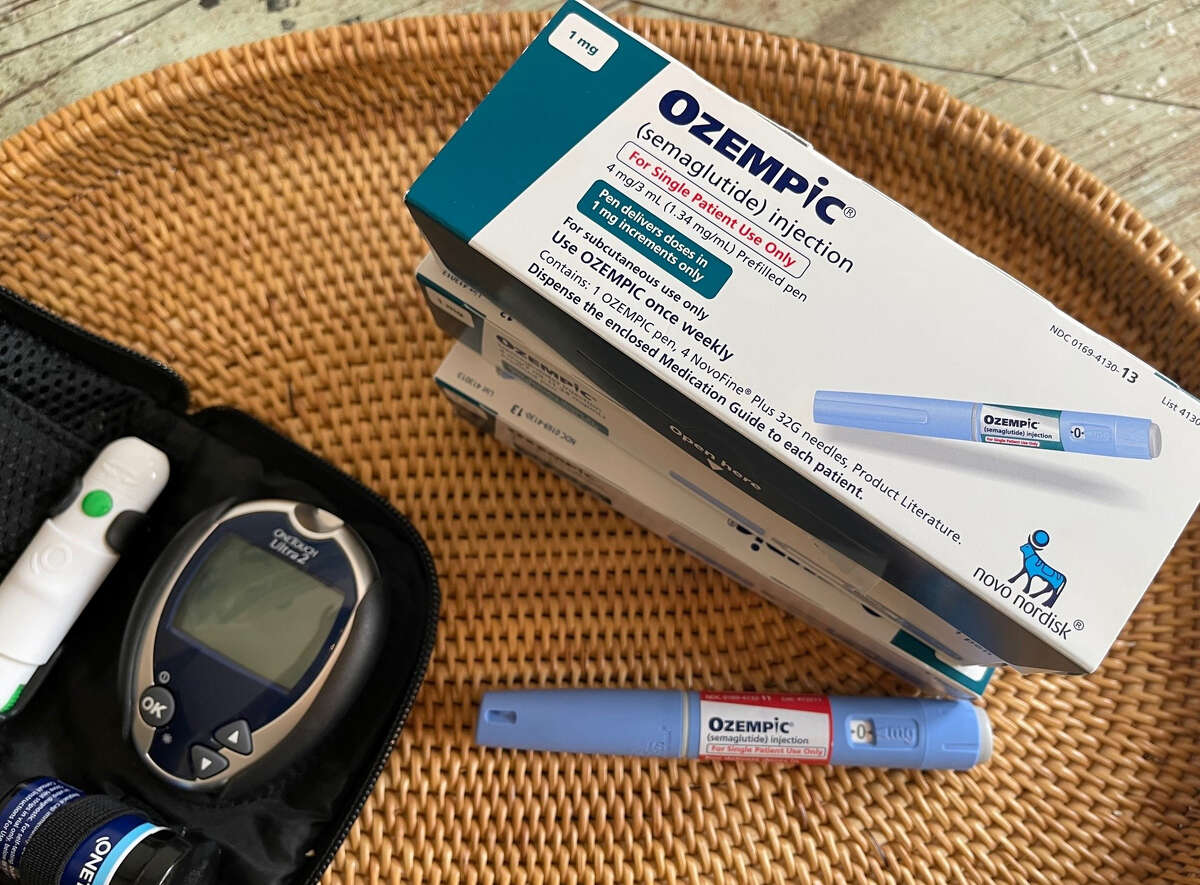Since early 2022, thousands of people with chronic health conditions have been struggling to find a medication that is necessary for their survival. The culprit? A new, popular weight loss trend is influencing many to use this medication to achieve a slim physique.
Ozempic, the medication in question, is often prescribed to people diagnosed with Type 2 diabetes. Ozempic contains semaglutide, which mimics a hormone called glucagon-like peptide-1; the hormone regulates insulin levels and prevents cardiovascular disease for people with Type 2 diabetes. Semaglutide can also reduce appetite and slow down digestion in the stomach—hence its newfound popularity as a weight loss drug. The FDA has not approved Ozempic for weight loss use, but Wegovy, a medication that also includes semaglutide, was approved for people with weight-related health conditions in 2021. Since its approval, demand for Wegovy has spiked, causing consumers to turn to Ozempic, and thus making it more difficult for those with Type 2 diabetes to access.
As a result, many people with Type 2 diabetes have had to find other solutions. For example, some have needed to take insulin as a replacement for Ozempic, despite the fact their bodies are unable to process insulin correctly.
“It’s been very frustrating,” said Tammie Rachell Largent-Phillips to NBC News. Largent-Phillips is a Type 2 diabetes patient who recently needed to switch her medication to insulin. Although it’s supposed to help cells absorb sugar, if the body doesn’t absorb insulin properly, it can lead to dangerous fluctuations in blood sugar.
“Even in the short run, people can feel poorly from high blood glucose levels,” said Dr. Robert Gabbay to NBC News, chief scientist for the American Diabetes Association. Additionally, these spikes in blood sugar levels can lead to serious health problems, like heart disease, kidney disease, hearing loss, and strokes.
Many patients are not only forced to search different pharmacies, hoping to find their medication but are also often left with no choice other than to switch to less effective medications or take lower doses of Ozempic than recommended.
“It really makes me mad; it infuriates me,” Type 2 diabetes patient Shane Anthony said to NBC News. He hasn’t been able to access Ozempic since October and has had to switch to a different, less effective medication as a result. “We need it to stay alive and keep functioning on an everyday basis.”
If or when Ozempic becomes more widely available, diabetes patients will need to go through a complicated process to restart their medication. Patients will need to start with smaller doses in order to cope with side effects like nausea, vomiting, dehydration, fatigue, constipation, and diarrhea.
Some individuals who have been trying to gain access to semaglutide throughout the shortage have turned to a compounded medication. Compounding medications is normally a safe practice that is regulated by state and federal laws, a process where a substance is adjusted for a patient’s needs. This can include ingredient substitutions and dose and form changes. Compounded medication typically comes with a lower price because of a lessened medication dosage or the removal of expensive dyes and preservatives that are found in commercial drugs. This is an especially appealing option for consumers because of the high cost of semaglutide. The cost without insurance for Wegovy is $1,300 for a 28-day supply and $892 for a monthly supply of Ozempic.
Unfortunately, it is difficult to tell if compounded semaglutide comes from a reliable source, especially because Novo Nordisk, the Danish company that created and distributes semaglutide, has patented the molecule and doesn’t sell it for compounding. This means that the compounded semaglutide that is being bought and sold comes from an unclear source and is likely diluted or even combined with other drugs.
The effects of brand-name semaglutide on those who do not fit FDA criteria have not been studied, and those who do quality are highly monitored while on the medication. There are many unknown risks of taking semaglutide for personal use, as well as taking a compounded substance of unknown origin.
Some experts have theories on where this compounded semaglutide may be coming from. For example, Dr. Scott Isaacs, an endocrinologist and obesity medicine specialist, explained to Insider that he suspects suppliers are buying large amounts of brand-name versions of semaglutide and repackaging them into smaller doses.
Samantha Blakeney, the vice president of new business and marketing at VLS Pharmacy and New Drug Loft Pharmacy, explained to Insider that she thinks some suppliers may be using semaglutide sodium, a substance that is available online that breaks down into semaglutide. Semaglutide sodium, unfortunately, is not sold for human consumption and is not FDA-approved.
Additionally, the barriers to being prescribed semaglutide have been drastically reduced as its popularity has risen. Many people are getting prescriptions through one telehealth meeting or even online forms, not getting the recommended follow-up from a doctor.
This rise in popularity is partially due to internet fame and the influence of various celebrities. On TikTok, the hashtag Ozempic has been viewed 639 million times at the time this article was written. Additionally, celebrities like Elon Musk have promoted the use of semaglutide on social media, claiming it as their secret to staying in shape. There have also been plenty of rumors of Hollywood stars using the drug to keep themselves red-carpet-ready.
Dr. Christopher McGowan, a gastroenterologist and obesity medicine specialist, believes that the off-label, cosmetic uses of semaglutide distract from the benefits it provides to patients with diabetes, obesity, and other health conditions. “The messaging has been derailed from this being a medical breakthrough to a celebrity short-term weight-loss drug. It’s not a quick fix,” he said to Insider.
On February 24, the Biden administration made an announcement to reinstate federal requirements for patients to see a doctor in person before being prescribed addictive medications like Vicodin, Oxycontin, and Adderall, which limits telehealth prescriptions. It is currently unclear if similar action will be taken by the government to help reduce the impact of the Ozempic crisis, but this development is a turning point regarding poorly regulated telehealth prescriptions.
Novo Nordisk sent a statement to NBC News that the availability of Ozempic has improved, but unfortunately, supply issues still remain. Patients will likely continue to experience delays in receiving their medication in the near future.
Featured Image Source: Houston Chronicle






Comments are closed.